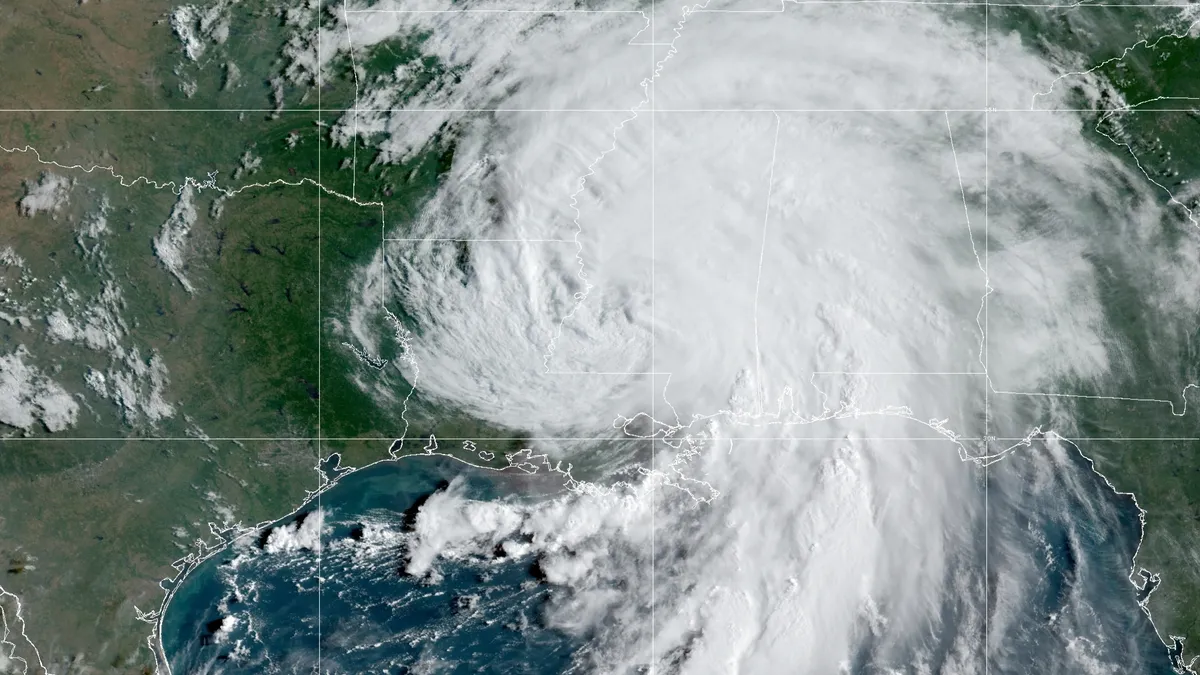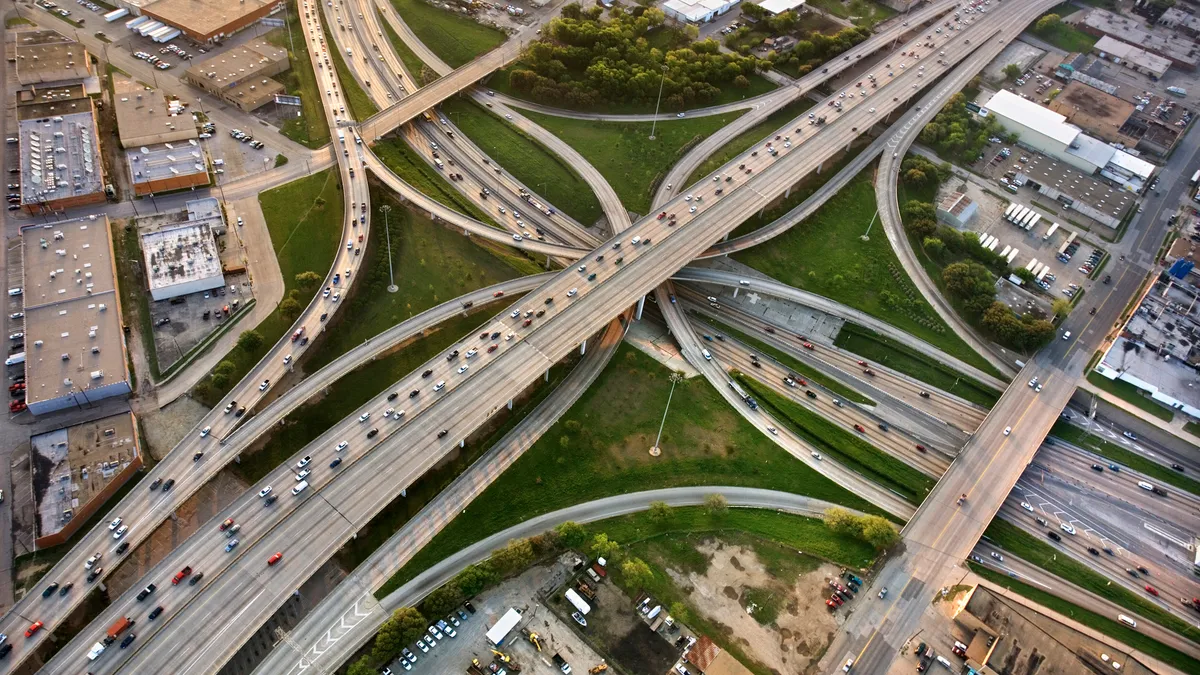Dive Brief:
- The Federal Motor Carrier Safety Administration issued an emergency declaration for Alabama, Arkansas, Louisiana, Mississippi, Tennessee and Texas for trucks and drivers transporting emergency supplies, fuel and persons in the states in response to Tropical Storm Ida.
- The storm, which made landfall as a Category 4 hurricane Sunday, shuttered ports, halted rail operations and could have long-term effects on manufacturing and supplies in the region.
- It's not unusual in the immediate aftermath of a storm for trucking capacity to tighten and spot rates to rise. After Hurricane Harvey in 2017, van rates spiked 12 cents per mile, and outbound prices rose in every major van market, DAT said.
Dive Insight:
Over the weekend, Ida barreled toward Louisiana with 150 mph winds that led to storm surges and flooding. The storm knocked out the power in New Orleans, leaving the city operating on generators. At least one person was killed.
The already limited supply of trucks and drivers available in the current market are being redirected to haul relief supplies or provide other emergency services. Tanker trucks will need to haul fuel used to power generators.
"Every time, our industry bands together to safely and efficiently deliver food, water and other emergency supplies and equipment to those who need them most," Ford Boswell, senior advisor at the Alabama Trucking Association, said in an email earlier this year.
Shippers across industries are advised to expect delays on their freight shipments.
"Fleets all over the country are going to drop their committed freight for relief loads," FreightWaves CEO Craig Fuller tweeted Sunday. "For the next two weeks, it’s the highest and most important freight in the system."
Rescue and relief efforts in response to Ida are underway, but the damage to infrastructure and impact on business could be long term. For example, when Superstorm Sandy hit the shores of New York and New Jersey in 2012, the port's Red Hook Container Terminal didn't receive cargo for eight days. And repairing damaged berths, fuel pumps, transformers, underground infrastructure, computer systems, trucks, cranes and other infrastructure took even longer.
The location where Ida hit is home to several oil refineries and petrochemical plants — an industry that faced weather-related disruptions earlier this year due to winter storms in Texas.
Manufacturers such as Dow, ExxonMobil and Shell shuttered parts of their plants and refineries ahead of the storm, according to the Independent Commodity Intelligence Services.
"The products made at many of these plants are already in short supply and the shutdowns could aggravate availability," ICIS wrote.
The Port of New Orleans is also a critical link in the U.S. agricultural supply chain. About 65% of the ports' exports are agricultural products, and coffee is one of the major goods imported at the gateway, according to Everstream Analytics.
For rail and intermodal shippers, the closure of the New Orleans Rail Gateway means rail interchanges may be closed. Several railroads announced ahead of the storm that they had repositioned equipment and assets.
Barge shippers will also face delays, as the U.S. Coast Guard closed the Lower Mississippi River to all vessel traffic as of 2 p.m. Saturday, the Port of New Orleans said. Louis Armstrong New Orleans International Airport expects all flights to be canceled Monday.
The Port of New Orleans closed its cargo operations Monday, including container and breakbulk terminals. Flood gates and rail operations are also closed. Norfolk Southern terminals in New Orleans are closed, it said in a Sunday service alert. "Customers with shipments destined to or through this affected area should expect delays up to 48 - 72 hours," the railroad said.







